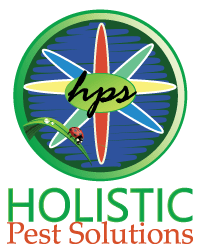Being stung by a wasp or a bee is not exactly a picnic. If you’re allergic, it can even be deadly. Lucky for us, most bees aren’t looking to sting us. Most bees sting simply to protect themselves, so the best way to avoid getting stung is to make sure they do not feel threatened by you. Here are 10 other ways to avoid bee stings.
-
Skip Fragrances:
Sweet-smelling fragrances may attract hungry bees and wasps who are looking for nectar. Avoid wearing scented hairspray, soaps, lotions, and oils during the summer. They can follow scents from a distance, and once they find the source of the smell (you) they might land on you or buzz around you.
-
Don’t wear floral patterns or bright colors:
Bees are attracted to bright colors. The most likely colors to attract bees, according to scientists, are purple, violet and blue. Bees also have the ability to see color much faster than humans. Their color vision is the fastest in the animal world – five times faster than humans. Try wearing colors such as khaki, white, beige, or other light colors in order to not attract bees. There is a reason that beekeepers wear all white!
-
Be cautious when eating and drinking outdoors:
Sugary foods and drinks might taste yummy, but they will also attract bees and wasps. Make sure that before you take a sip of your drink a stinging critter hasn’t gone in for a taste. Fruits can attract bees and wasps as well, so be cautious when eating fruits outdoors.
-
Wear shoes:
Bees may be on a clover or small flower in your yard, so if you step on one, it’s going to try and protect itself and sting you. There are also many ground bees that might not be happy if you accidently stepped on their home. Wearing shoes and socks will provide you with more protection from the sting.
-
Keep calm:
Most of us have heard that ‘bees can smell fear’. Basically, bees cannot literally smell fear, but if you are fearful, your body releases certain pheromones, which bees can detect as a threat. The worst thing to do when see a bee or wasp is to freak out and start swatting at it. If one is buzzing around you, just stay calm. It is determining if you are a flower or another resource useful to it. Once it finds out you’re not, it will fly away.
-
Be aware of your own body odor:
In the wild, bees and wasps can be provoked by their predator’s sweat/body odor. (Think bears) If you have been outside sweating from an activity, consider taking a break and freshening up.
-
Avoid Hives:
This is a “duh” one, but is worth mentioning. Hives are a bee‘s territory. If you get close enough, they will attack and sting you to defend it.
-
Don’t hang out in the flower garden:
If you are worried about being stung by a bee, you should obviously stay away from places where they are numerous. Bees spend most of their day flying around collecting nectar and pollen. Don’t get in their way, and if you’re gathering flowers, wait until they’ve moved onto a different one.
-
Keep car windows rolled up:
Keeping your car windows rolled up will prevent them from accidentally flying into your car. If one appears in your car, do not panic and roll down the window to encourage them to fly out.
-
Call professionals to remove unwanted bees, wasps or hornets.
If you spot a wasp/hornet nest or a bee swarm, it is best to call for help. Professional pest companies, like Holistic Pest Solutions, can remove the wasps/hornets/bees safely without putting you at risk for a sting. If the bees turn out to be harmless honey or bumble bees that are very important to our eco-system, we’ll let you know that and help you contact local bee-keepers to retrieve them safely.
We hope these 10 ways to avoid bee stings will help you when you’re outside this summer. If you have a bee, hornet, or wasp issue at your home, give us a call at 434 842 1700
*Our Environmental Commitment: Holistic Pest Solutions is committed to the preservation of our environment. Our goal is to nurture the soils and plant life of lawns and landscapes. Utilizing holistic pest control practices that cause the least amount of impact on the environment.







